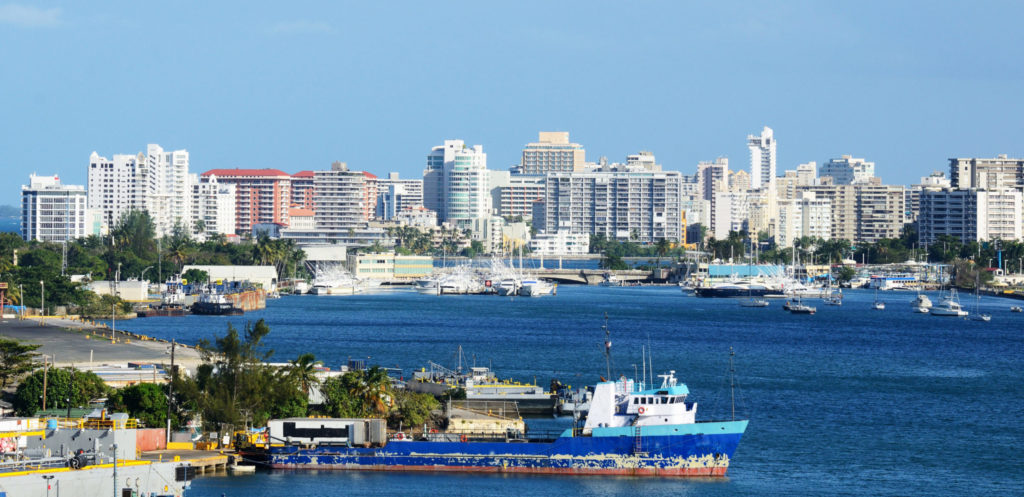Recently I had the opportunity to talk with Luis Alemañy, a Puerto Rican entrepreneur whose company, SJT Manufacturing, provides a real-life example of the opportunities present in Puerto Rico for companies looking to bring parts of their supply chains closer to North and/or Latin America. SJT is a contract manufacturer of high-precision sheet metal parts, based in Bayamón (Puerto Rico’s second-largest city by population, which is located in the San Juan metro area). Some of the items SJT produces are computer and communication racks, electrical boxes, and medical and examination furniture. SJT’s clients include Google, HP, Tyco Worldwide, Johnson Controls, and Sanmina, as well as clients in the military and defense space.
I read about Luis and SJT in an intriguingly titled article in the local press, Mudan manufactura de Asia a la planta SJT Manufacturing en Bayamón (“Asian manufacturing moved to SJT Manufacturing plant in Bayamón”). There have recently been important initiatives to promote Puerto Rico as a replacement for some China manufacturing, especially in the pharma sector. For instance, the MMEDS Act, a bicameral initiative introduced in the House by Puerto Rico’s resident commissioner and in the Senate by Marco Rubio, would “rescue domestic medical manufacturing activity by providing incentives in economically distressed areas of the United States and its possessions.” In that context, it was exciting to read about companies making the switch from Asia to Puerto Rico, especially from outside pharma.
It’s not just tariff-plagued and cyber-insecure China that companies are fleeing for Puerto Rico. SJT has also snatched production from Malaysia, a country that is viewed as an alternative to China. This underscores a critical point: A move across the border from China to neighboring Southeast Asian countries like Malaysia or Vietnam might (or might not) provide a quick fix for the tariff problem, but may create new supply-chain anxieties. For a start, those countries could soon find themselves with a target on their backs for their own trade practices, such as currency manipulation, abetting illegal transshipment, and dumping.
Even if a country is a good trade actor, the realities of geography and borders mean that, during a time of crisis, its supply chains might become unreliable. This is exactly what has happened during the ongoing COVID-19 emergency. Within this scenario, the advantages of working with a manufacturer in the United States have become more apparent than ever.
When they work with producers such as SJT, companies that ship/sell their products to the United States do not have to worry about international travel restrictions and quarantines. For staff based in, say, Boston, travel to Puerto Rico is as straightforward as it is to Florida. In addition, Puerto Rico has largely remained open for business. Even though the island adopted stricter measures than most places in the United States, the controls had enough built-in flexibility to allow companies like SJT to keep on working. For instance, the company would issue letters explaining the essential nature of workers, in order to help them navigate police checks during lockdowns.
Beyond that, you will be dealing with English-speaking U.S. citizens culturally attuned to dealing with Americans. Many will have spent time living in the mainland United States, including studying at U.S. colleges. At the same time, Puerto Rico “has the lowest labor costs of any region under U.S. jurisdiction,” according to Invest Puerto Rico. This means companies can benefit from the U.S. labor force at a discount, which is appealing to American companies, of course, but also to companies from other countries, as evidenced by the fact SJT has been contacted by prospective clients in Spain and other European countries. These attractions will outlive COVID-19, and could also help Puerto Rico gain a long-term edge over Southeast Asia, not to mention China.
Puerto Rico has not been spared the negative impacts of the coronavirus pandemic, but if there’s a silver lining for the island, it’s the renewed attention being given to its manufacturing capabilities and other economic potential. COVID-19 has made it clear that securing supply chains is, literally, a matter of life and death. When it comes down to it, no manufacturing destination can offer the guarantees that one located on U.S. soil can deliver.
In the specific case of medical devices and medicines, Puerto Rico is an obvious choice: it is already the largest U.S. exporter of pharma and medicine products. SJT’s success, however, demonstrates that pharma is not Puerto Rico’s only game.

























